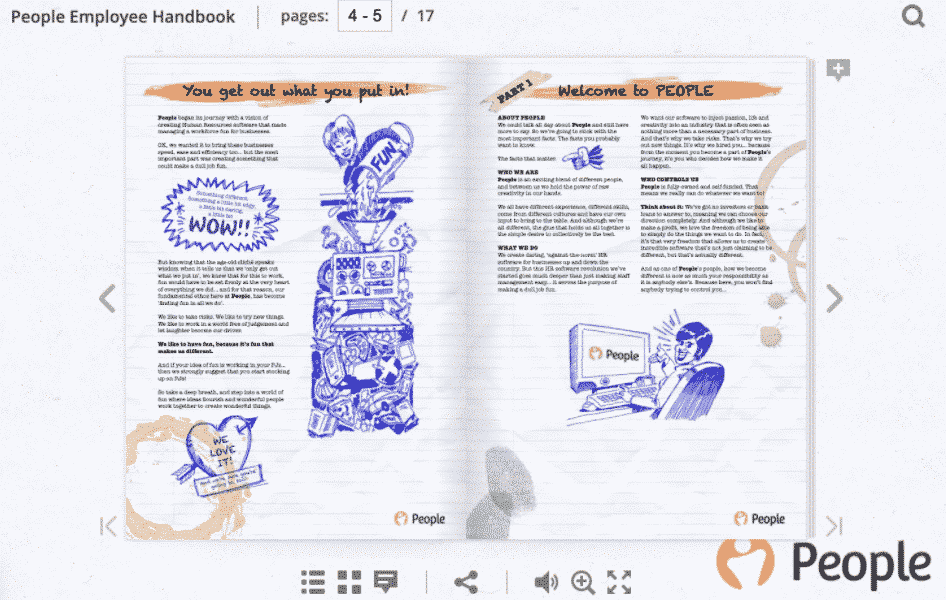The seasonal peak is, for many retailers, the most important period of the year. Ensuring you have the resources needed to maximize your returns during these key months is a regular part of running a successful business.
On the one hand, there are the practical, technological processes to consider, such as using EDI automation to create a smooth payment and shipping process. On the other hand, you need to think about your business's human side, managing your physical environments, and the in-store experience for customers.

There’s a lot to keep track of in meeting the HR demands of seasonal retail for business owners. Here are some points that could help you make sure your hiring process is as effective as possible. And that you get the most out of any seasonal employees you may take on.
Tips to hire seasonal employees
1. Be proactive
A successful onboarding process is essential for new staff to be effective. This takes time, so factor this in to hiring and start considering seasonal employees early. Think about when you will have downtime in the run-up to key periods so that you can arrange group training.
Get your vacancies posted in the right places at the right time. Most recruitment websites get an influx of short-term roles for Christmas in September, so be visible as soon as people start looking for these vacancies.
2. Calculate your needs
Crunching the numbers is essential for running most areas of business smoothly. From maximizing your online efficiency via a conversion rate calculator to buying in the right stock levels to meet increased demand, there’s a lot to consider in meeting your needs for peak periods.
The same goes for staffing, and it’s important to know where you need extra support. You can automate invoices, but customers need to speak to real people when it comes to the in-store experience.
Talk to your existing staff about their capacity for extra shifts and work from there. Do as much scheduling as you can before things get really busy – you can always make tweaks here and there, but your staff will appreciate knowing what’s coming up well in advance.
3. Ask your current employees
Your existing staff is an essential resource in so many ways, which applies to recruitment. Word gets around about good and bad employers among social circles. The likelihood is, too, that your team will have useful connections to people in similar working situations.

Sites like Glassdoor provide detailed employee insights about employers (Image Source)Harnessing the recruitment power of your employees has many benefits. Starting a new job, knowing you have the support of a familiar face is helpful from a new seasonal employee's perspective.
It assures that the job comes from a trusted recommendation; it helps the team bond. It may also help with induction. Getting to grips with new processes like replenishing stock or working the order management system can be daunting; being able to ask for guidance from someone you know well can be a confidence boost.
It’s also a great way to improve morale. Letting your staff know their input is valued in all areas of the business is important. Incentivized ‘recommend a friend’ schemes are a great win-win opportunity, allowing you to give your employees a bonus while recruiting reliable staff and avoiding agency fees.
4. Pay competitively
There is a lot of competition between businesses during seasonal periods to recruit extra staff with similar skill sets. This is particularly true in the retail industry, with the need for greater presence in-store and processing to cope with the additional demand.
Conditions are still incredibly important to seasonal employees, but the most important factor is undeniably remuneration. Ensure your hourly rates are competitive by regularly monitoring what others in your sector are offering. Whilst there will always be a limit to the rates you can offer, combining fair compensation with realistic, reliable shifts and generous overtime will mean your business remains an appealing option for seasonal workers.
5. Advertise through social media
Social media is a wide-reaching, cost-effective advertising channel, giving your brand access to a huge talent pool. Small or artisan businesses may well have found social media instrumental in the early stages of building a brand and will have naturally built a local following to reach out to.
More well-known companies are likely to appeal to a larger fan base. Posting a clear, well-designed vacancy ad on your own pages is a great (and free) start to your recruitment drive.

Simple, eye-catching posts can help you reach out to potential staff (Image source) If you want to be more expansive, there are numerous paid opportunities to utilize social media. Data-driven advertising is constantly expanding your targeting options, allowing you to create highly specific audiences if needed, minimizing wastage, and maximizing your recruitment budget.
The key here is to design a simple, unintrusive post-in-keeping with the rest of your brand. People don’t always appreciate companies showing up as they scroll, but younger audiences rely on social media for potential employers' information. There is certainly scope for it to play a greater role in the recruitment process.
6. Maintain high standards
When a customer enters your store, they aren’t going to know who is a seasonal employee and a regular staff member. The way they are dealt with by either type of worker will reflect your company the same way. It’s therefore hugely important to maintain the same standards for seasonal staff, as much as possible.
Naturally, though, you don’t want to have a grueling, over-complicated hiring process for additional staff. One way to easily vet your candidates is to ask scenario questions representing key tasks they’ll need to perform. This can be in the form of a multiple-choice online questionnaire, meaning you can be sure any in-person interviews are with people who have proven they match your needs.
7. Be visible and accessible in your local area
With businesses facing some difficult decisions due to the pandemic and the furlough scheme's ending, there may be increased opportunities to hire experienced staff who wouldn’t otherwise be in the jobs market.

Ensure your job descriptions are fully up to date and available in both electronic and hard copy formats. You can keep the latter ready in-store or by a reception desk. Use in-store materials and investigate local media opportunities to advertise your roles. This will help maximize the opportunities your company has to interact with potential new staff.
8. Diversify your roles
The online shopping boom that has been seen this year has had some unfortunate ramifications for traditional retail. However, there are signs of healthy bricks-and-mortar environments returning, and this includes innovations in customer service, such as curbside pick-up.
Customers appreciate brands striving to meet their needs. Think about the space, products, and services you have available, and consider any new methods you can take. That may be when approaching customer service or the in-store experience as a whole. Through your online presence, you can also investigate new eCommerce ideas that could suit your company and expand your offering. Bringing in ideas can create new roles and diversify the range of talent you’re looking for, thereby expanding your recruitment options.
9. Emphasize your USPs
While point four focused on staying competitive through pay rates, there are other tools at your disposal to make you stand out. Emphasizing your brand's unique qualities will draw out what makes your culture, products, and physical environment interesting and how they build a positive working experience.
Appealing to potential employees on a human level can help reinforce the dedication you need to expect of them when representing your company.

Create an employee handbook to explain your values and processes (Image Source)
One great way to approach this is to make online handbooks. In these, you can go into detail about your history and beliefs. That can help you appeal to new staff in your brand’s tone of voice to convey what makes working for you valuable experience, even in the short term.
10. Make your staff feel valued
All staff needs to value the hard work you’ve put into your business, but they need to feel valued in return. Any HR manager will tell you that a strong, supportive culture is essential to staff morale, and therefore to wider success.
Being inclusive with new staff as early as possible will go a long way to helping them embed into their new environment and feel appreciated. Communication is key here. As long as they’re well informed about processes, events, and changes in store, then they will be as comfortable and confident in their role as possible. From a cultural standpoint, having them included in a team Whatsapp group or equivalent, will mean they feel included, rather than like a spare part.
11. Be realistic
Maintaining a positive relationship with employees is about trust, transparency, and respect. Be realistic about what you can offer while maximizing the benefits. If you might have the capacity to offer longer-term work for the right candidate, then mentioning this can help attract stronger applicants. But be clear about the nature of the seasonal work to avoid disappointment.
Conclusion
If you’re flexible about your offering - through different roles or locations, for example - then applicants will also appreciate this. Give them the chance to apply for varied opportunities and then discuss where they will fit in best. It shows that you value their opinion from the start and are willing to accommodate their needs.
Get the
MidWeekRead
Get the exclusive tips, resources and updates to help you hire better!




.jpg?width=1000&name=6797cc6580ed37f294dde1be_pexels-linkedin-sales-navigator-7245806%20(1).jpg)


